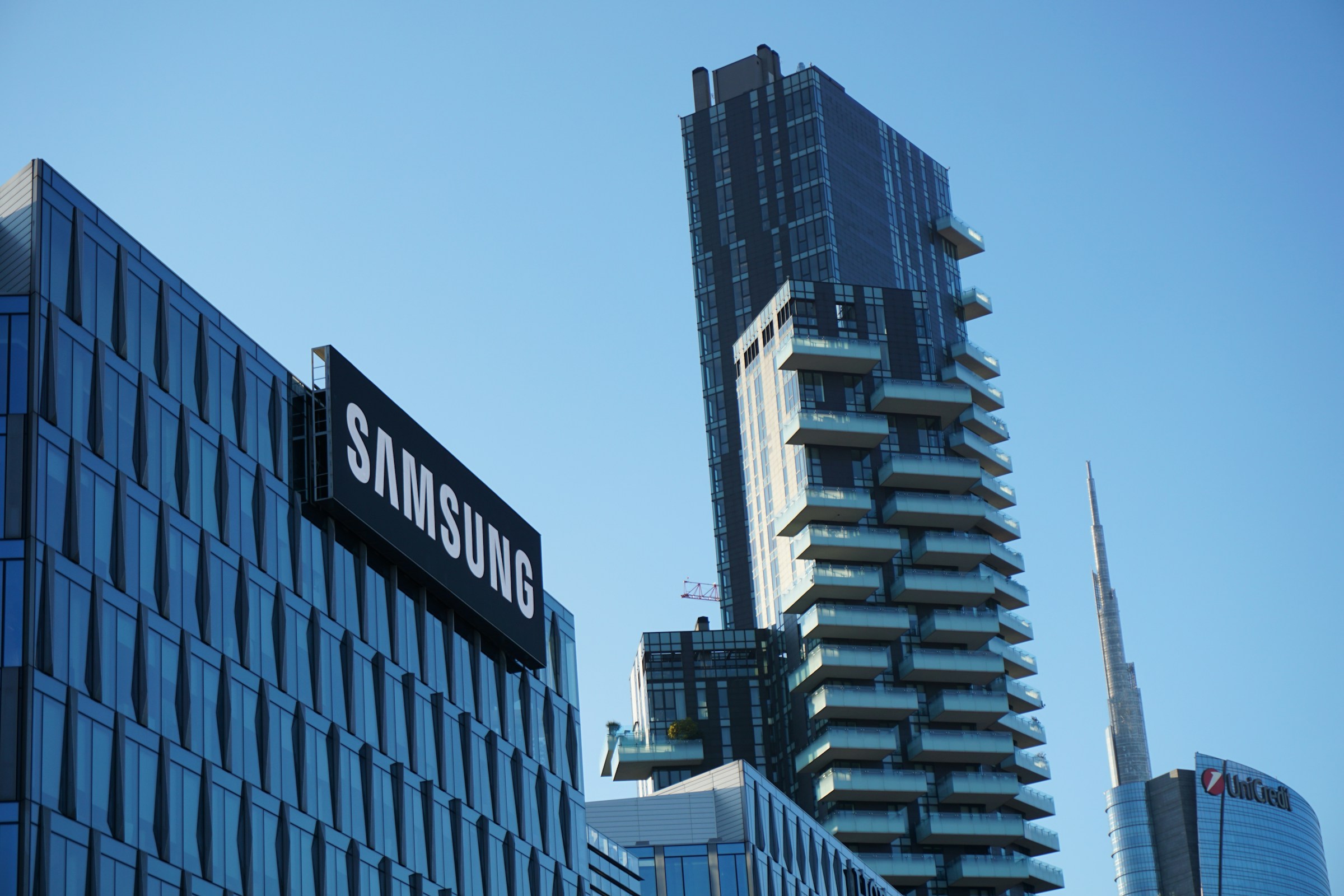Samsung just reported a 55% drop in Q2 operating profit—and on paper, it’s easy to blame geopolitical stress and delayed high-bandwidth memory (HBM) shipments. But if you’re thinking like an operator, that’s not the real story. The real story is structural tension in Samsung’s model. The world’s largest memory chipmaker is showing signs that its product edge is no longer enough to carry its platform logic—because AI-era demand is breaking the old playbook.
The South Korean giant’s semiconductor division logged only 400 billion won in profit this quarter, plunging from 6.5 trillion won a year earlier. That’s not a dip. That’s a signal: the vertical integration logic that Samsung has scaled for decades is now misfiring against a market that runs on coordination, not just capacity.
Let’s get this straight: yes, HBM demand is real. AI data centers, model training cycles, GPU stacking—all of it creates appetite for specialized memory chips. But demand is not the same as deployable revenue. Samsung is struggling not because the chips don’t exist, but because the internal machinery that turns silicon into sustained delivery isn’t ready fast enough.
Samsung's internal note blames “inventory value adjustments” and “one-off costs” tied to US export restrictions. Translation: chips were made, but couldn’t move. Sales channels tightened. China-facing contracts hit compliance friction. And most importantly, the ability to redirect and monetize supply through alternate markets wasn’t fast enough to absorb the shock.
This is how readiness gaps surface—not in product reviews, but in missed revenue cycles.
Right before these earnings dropped, Tesla signed a $16.5 billion chip deal with Samsung. On its face, this sounds like a headline fix. But read the deal closer. Tesla isn’t picking a champion. It’s diversifying risk. In a climate where Nvidia hoards fab capacity and geopolitical tensions disrupt contract chipmaking, Tesla is making a logistics decision—not a strategic bet on Samsung’s roadmap.
If anything, the timing of the Tesla announcement feels preemptive. A tactical announcement to soften an operationally fragile earnings release. It’s not a signal that Samsung’s chip division is turning a corner. It’s a reminder that demand-side anchoring (like EV makers seeking AI chip redundancy) won’t fix supply-side lag.
Samsung’s edge used to be end-to-end control: design, fab, packaging, global delivery. That model worked in an era of predictable scale and broad market addressability. But AI-era scaling isn’t about volume—it’s about velocity. The flywheel now is speed of adaptation: tuning for thermal performance, co-optimizing with GPUs, delivering memory bandwidth under variable latency constraints.
Samsung still builds the hardware. But AI platforms don’t just want chips. They want integration. And this is where Samsung’s traditional advantage breaks. Nvidia owns the stack. AMD is aggressively verticalizing. Even foundry players like TSMC are embedding co-design services upstream. Meanwhile, Samsung is managing geopolitical exposure, regulatory headwinds, and internal alignment friction between its memory and foundry arms.
That’s not a flywheel. That’s a dual-core drag.
You don’t lose 6 trillion won of quarterly chip profit by accident. That kind of decline doesn’t happen because one shipment was late. It happens when your operating model hasn’t caught up to the new economics of AI infrastructure.
HBM isn’t just a product—it’s a systems constraint. If you can’t guarantee throughput, cooling parameters, and packaging consistency at scale, your product gets bypassed. Not because it’s bad, but because it’s late. That’s what’s hurting Samsung now. They’re not being out-innovated. They’re being out-timed.
The margin profile doesn’t lie. A one-time drop can be forgiven. But six quarters of struggle, capped by a sub-trillion profit on chips? That’s no longer a cycle. That’s a reset.
If Samsung wants to stay relevant in the AI supply chain, it has to stop thinking like a volume-first manufacturer. The playbook now is precision deployment—can you deliver chips that work with Nvidia’s architecture, with Tesla’s vertical control stack, with US export compliance, and with post-Chinese-diversion reliability?
That’s not just fab capacity. That’s organizational alignment.
The legacy advantage—“We do it all ourselves”—is now a bottleneck. The new edge belongs to companies that can modularize, plug in, and reconfigure based on partner stack demands. That means tighter go-to-market partnerships, more agile packaging logic, and a foundry business that behaves more like a software layer, less like a hardware supplier.
Right now, Samsung’s execution speed isn’t keeping pace with its product ambition. And in an AI cycle defined by iteration loops, that lag is expensive.
Samsung’s Q2 profit plunge is more than a tough quarter. It’s an operational readout of how tech leadership breaks when system velocity doesn’t match market timing. The chips are good. The packaging is competent. But the loop—from design to delivery to revenue—isn’t tight enough.
That’s not a delay issue. That’s a business model exposure. Samsung doesn’t need to rebuild its tech stack. It needs to rebuild its speed-to-signal stack. Because in AI’s high-bandwidth era, whoever closes the readiness loop fastest doesn’t just win margin. They win the platform. And right now, Samsung’s still catching up.















